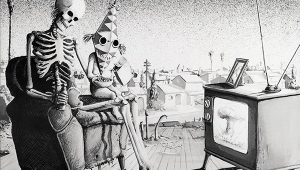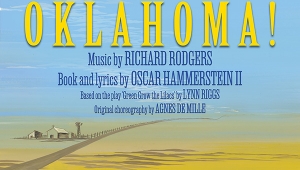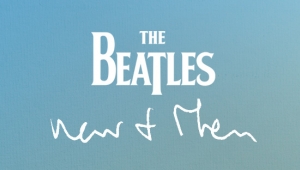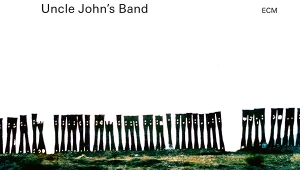| Columns Retired Columns & Blogs |
July 2022 Classical Record Reviews
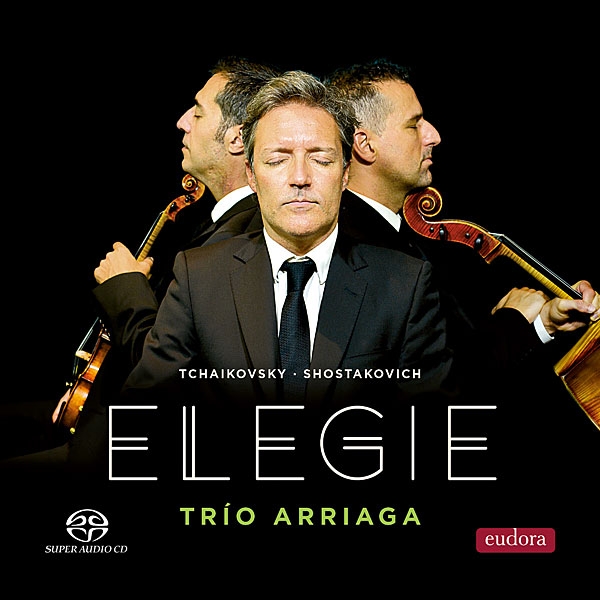
Trío Arriaga: "Elegie"
Tchaikovsky, Piano Trio; Shostakovich, Piano Trio 2
Eudora EUD-SACD-2201 (SACD). Gonzalo Noqué, prod. and eng.
Performance *****
Sonics *****
Tchaikovsky, Piano Trio; Shostakovich, Piano Trio 2
Eudora EUD-SACD-2201 (SACD). Gonzalo Noqué, prod. and eng.
Performance *****
Sonics *****
The Tchaikovsky trio, cast in two large movements, frequently struggles to find an identity, or an aesthetic point. The Tr°o Arriaga's recording is the first I've actually liked. In the first movement, the players project the two themes with clear contours and firm direction; in the codetta, they delve more deeply into typical Tchaikovskian yearning, turning introspective as the recap winds down. Their suggestive colors and character solve the unwieldy theme and variations: A mournful "Volga Boatmen" episode (track 6) segues into high piano chords with a Christmas-carol twinkle. Fugues were not Tchaikovsky's strength, but the players articulate this one incisively. The Chopinesque, piano-dominated Mazurka gets dancing accents. The long final variation, perhaps striving for "substance," is comparatively formal, but the Arriagas keep it purposeful.
The playing is first-class. David Apellániz's warm, posh cello gets things off to a fine start. I like the way pianist Daniel Ligorio reserves big, ringing chords for the chorale climax; his scales in the Third Variation are unobtrusively dazzling. Juan Luis Gallego's violin tone loses body in the fugue's piano, but his pure, silvery lines soar in Track 13. Save for an uneasy moment in the waltz, ensemble is exemplary.
The violin harmonic that begins the Shostakovich heralds an utterly different sound and aesthetic. This trio is suffused with the rhythms and modes of Russian-Jewish folk music, and the players perfectly capture its lilting emotional ambivalence—even the ambiguous finale won't commit fully to cheerful good humor. The players pivot into this sparser writing with poise; Gallego is particularly moving in the broad threnody that begins the Largo.
The SACD sounds handsome even in ordinary stereo. Tchaikovsky's variations are individually tracked.—Stephen Francis Vasta
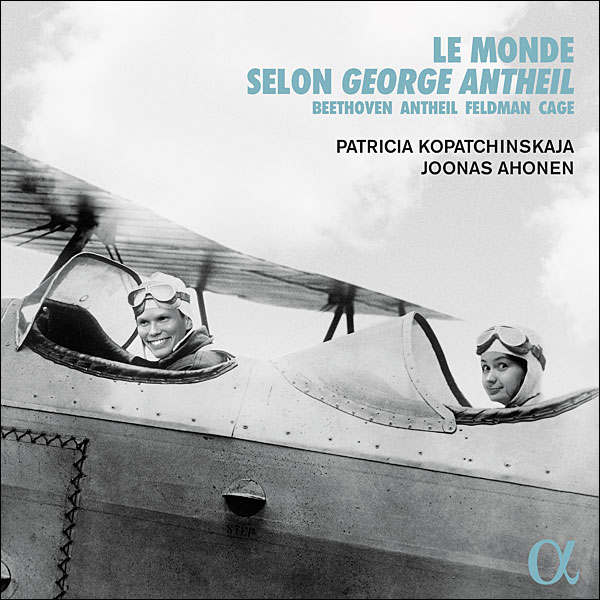
Patricia Kopatchinskaja: Le Monde Selon George Antheil
Kopatchinskaja, violin; Joonas Ahonen, piano
Alpha 797 (reviewed as 24/96 WAV), 2022. Marion Schwebel, prod. & eng.
Performance ****½
Sonics ****½
It makes sense that Patricia Kopatchinskaja, a startlingly energetic and direct violinist known for pushing the interpretive edge, would embrace the Sonata No.1 for violin and piano by "The Bad Boy of Music," futurist George Antheil. In strokes of programmatic genius, she and Ahonen surround Antheil's stunner with works by three men who also upset the musical norm: Beethoven, who was Antheil's musical hero; John Cage; and Morton Feldman.
As much as Kopatchinskaja's furious, sonically edgy reading of the first movement of Beethoven's Violin Sonata No.7 in C minor ("Eroica") may turn heads, her take on Antheil's too-seldomly performed sonata will do far more. The first movement, which starts Stravinsky-like jolly before turning violent and transgressive, revs up the mechanical gears for a second movement that's equally mysterious and edgy. (Kopatchinskaja plays sul ponticello.) The intense focus at the end of the far slower third movement, whose initially murky minor-key start and strange, Asian-like excursions don't remain undisturbed for long, leads to a savage final exclamation both insistent and, at the conclusion, hammerlike. Imagine Charlie Chaplin running for cover in Modern Times. Ahonen's atmospherically recorded pianism is as vigorous and imaginative as Kopatchinskaja's razor-sharp fiddling. Wow!
Feldman's music bookends the recital. The short "Piece for Violin" (1950) sets us thinking, and "Extensions I" (1951) ensures that we won't fall asleep. In between comes Cage's Nocturne (1947). The piano opening is virtually mystical until the violin briefly veers off pitch. The contrast between accord and discord—between the past, present, and future—is marvelous, and much of the under-four-minute piece is hushed and beautiful. Highest possible recommendation.—Jason Victor Serinus
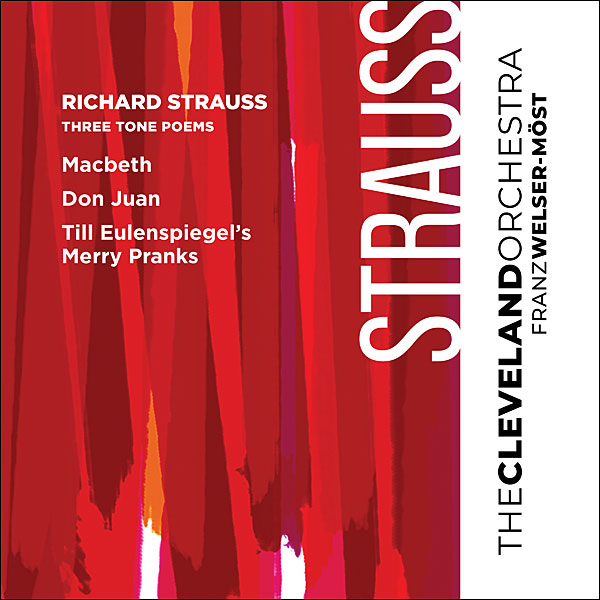
R. Strauss: Macbeth, Don Juan, Till Eulenspiegel's Merry Pranks
Cleveland Orchestra/Franz Welser-Möst
The Cleveland Orchestra TCO0004 (CD). Elaine Martone, prod.; Gintas Norvila, eng.
Performance ***
Sonics ***½
The Cleveland Orchestra's first postpandemic public concerts, from which these Strauss performances are drawn, arguably represent an occasion worthy of preservation. In terms of purely musical value, though, the recorded performances prove less than deathless.
Welser-Möst has consolidated his reputation and technique over a 20-year tenure in Cleveland, but these performances aren't his best. Seducer Don Juan is breathless, not suave. Phrases could be separated better; even when the conductor underlines their motivic links, the effect is of a run-on sentence. (Bows that sit long on the strings don't help.) The tempi as such aren't rushed, but everything feels hasty, and a couple of sudden accelerations are herky-jerky. All told, it's an exhausting experience. Perhaps the inherent anxiety of the occasion threw the conductor, and everyone else, off-kilter.
Till, after a similarly skittish start, is rather better; the "teased" horn solo helps keep tempos in check, at least for a while, and the walking second theme goes on with amiable warmth. But the approach to the joyoux climax is quite precipitate.
At the start of the early Macbeth—"the Scottish tone-poem"?—Welser-Möst balances the turbulent musical gestures so that the drama doesn't become melodrama. Dotted rhythms are springy and alert; the optimistic third theme is recognizably waltzlike. But, in later sections, the busywork becomes increasingly tedious, and the piece ends up feeling padded.
The sonic frame flatters the strings' sheen, and Till's E-flat clarinet is especially vivid; but, at a listening level where you can appreciate all the detail, the tuttis harden.
The booklet's unusually comprehensive program notes, on the other hand, are a definite asset.—Stephen Francis Vasta
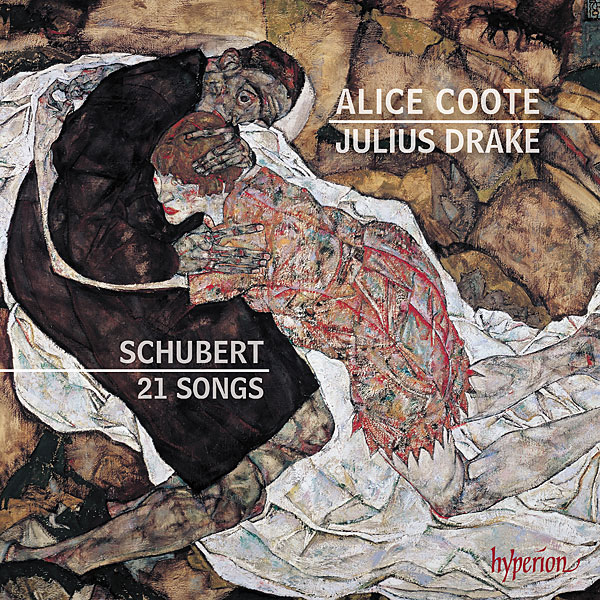
Schubert: 21 Songs
Alice Coote, mezzo-soprano; Julius Drake, piano
Hyperion CDA68169 (CD, auditioned as 24/96). 2022. Mark Brown, prod., Andrew Mellor, eng.
Performance ****
Sonics ****½
More than a decade ago, when Alice Coote presented a song recital with Julius Drake in the San Francisco Performances series, the profundity of her interpretations took my breath away. I still recall how I rushed backstage to thank her and say, "I just want to touch the hands of a great artist."
In December 2017, when she was 49, Coote finally recorded some of Schubert's most beloved lied. Those recordings are presented here.
Although the voice is a bit raspy down low, softly hit high notes glow with a radiance that drives the gravity of her interpretations straight to the heart. Take, for example, her renditions of "Wandrers Nachtlied" (Wanderer's Night Song) I and II. The former, a plea for relief from suffering, is sung with extraordinary focus and contained fervor; the latter, an equally ardent prayer for relief and peace, is virtually as arresting as on the great recordings by Hans Hotter.
Sadness and reverence come more naturally to Coote than joy. Where some artists (especially lyric sopranos) focus on the springlike sentiments in one of Schubert's great love songs, "Im Frühling" (In Springtime), Coote underscores the sadness in the words "the happiness of love flies past, and only love ... and, alas, sorrow remain." When she tries to convey the lightness and gaiety of "Seligkeit" (Holy Bliss), "Der Musensohn" (Son of the Muses), or "An Sylvia" (Shakespeare's "Sylvia"), she falls short of Ameling, Schumann, and other lighter-voiced artists.
Other interpretations, however, affirm her excellence. She plumbs the depths in "Der Tod und das Madchen" (Death and the Maiden), sounds transfigured in "Im Abendrot" (In Sunset), and transcends the mundane in "Ständchen" (Serenade). A must for those who love the great songs of Franz Schubert.—Jason Victor Serinus
- Log in or register to post comments








